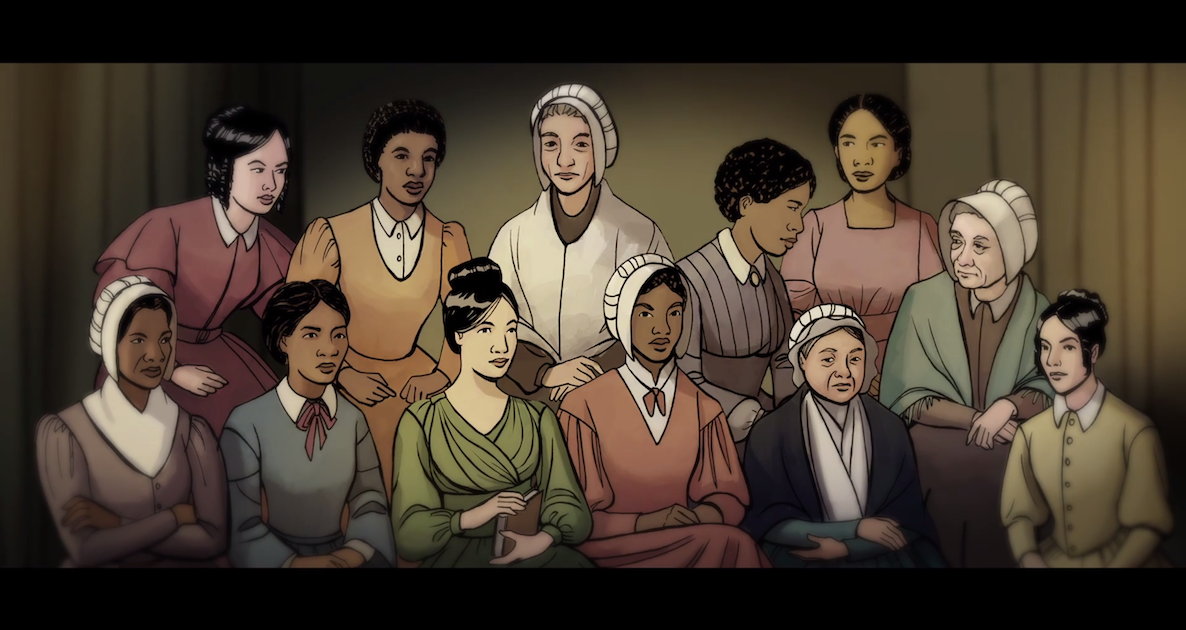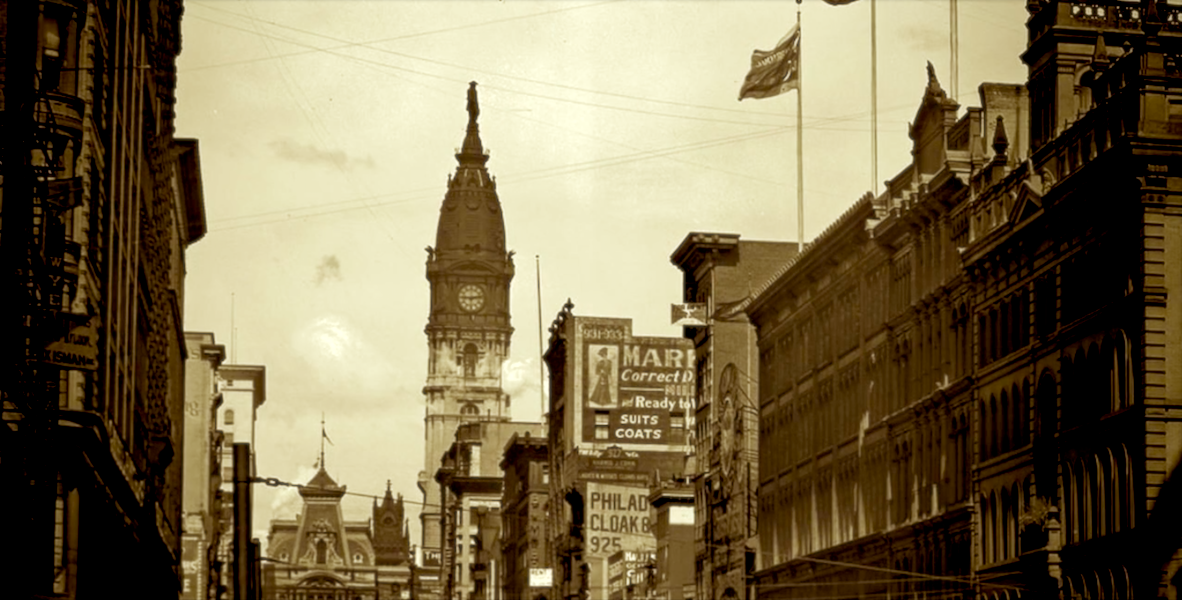On May 18, 1838, the meeting for the Second Anti-Slavery Convention of American Women brought prominent members of the Philadelphia Women’s Anti-Slavery Society together in the newly built Pennsylvania Hall, the first building made for abolitionists in America.
Outside the building, a large mob was forming. Many Philadelphians felt threatened by the meeting of black and white women and their passionate calls to end slavery. Rocks pelted the windows. The mob continued to grow.
Inside, the women refused to cut their meeting short. Angelina Grimke Weld addressed her peers: “What if the mob should commit violence upon our persons? Would this be anything compared with what the slaves endure?” The women refused to cut short the meeting, or to compromise their values. At the end, they walked out of Pennsylvania Hall arm in arm.
How is this story—of early American heroes—so little known until now? This is the question the filmmakers of History Making Productions—the Philly-based documentary studio founded by Sam Katz—asked themselves as they began research for their new documentary Sisters in Freedom. Though male abolitionists’ stories have been told countless times, women’s roles in the movement have been largely ignored. With the film’s debut on Wednesday, that will hopefully change.
Sisters in Freedom, directed by Wendy Cox and Andrew Ferrett and narrated by actress Sheryl Lee Ralph, tells the story of the black and white women of the Philadelphia Female Anti-Slavery Society. Founded in 1833, it was the first women’s abolitionist group in America. Its influential founders included Sarah Mapps Douglass and Lucretia Mott, who also went on to be a speaker at the Seneca Falls Convention.
![]()
As the movie relates, initial reception to the female abolitionists was shock and disapproval that women would dare to speak in public because, as Nathaniel Popkin, writer of Sisters in Freedom, notes, “Women were not granted a public role in life.” The abolitionists’ work changed public perceptions about women’s roles in society. “They were enacting women’s rights through their fight for abolition,” Popkin says. “And performing women’s rights led them to see their own power.”
The female abolitionists fought against slavery with many of the same methods familiar to activists today: They supported abolitionist publications, boycotted products that relied on slave labor and picketed door-to-door. Their efforts inspired millions of Americans to petition Congress to end slavery. Popkin believes the organizing of the Philadelphia Women’s Anti-Slavery Society has influenced many of the activist movements of today, like Black Lives Matter and the Women’s March. In many ways their struggle “might as well have taken place five minutes ago,” Popkin says. “A contemporary activist can see themselves in the women of the time.”
Sisters in Freedom is the latest film from History Making Productions, founded in 2008 by former Mayoral candidate Sam Katz and his son Philip Katz. Sam Katz says the idea for the film company came when he tried—and failed—to find a comprehensive documentary of Philadelphia, similar to those he saw about New York City and Chicago. History Making Productions’ first foray into film was Philadelphia: The Great Experiment, a 13-part documentary series. Since then, they have focused on local issues, institutions and influential people.
The first screening of Sisters in Freedom, at the Free Library, will be followed by a panel discussion facilitated by Nathaniel Popkin with historians Emma Lapsansky-Werner of Haverford College and Kate Oxx of St. Joseph’s University. The screening will mark the start of a series of films shown at 15 free library locations in celebration of Women’s History Month.
Wednesday, February 27th, 6:30, Free, but RSVP appreciated, Philadelphia Free Library Parkway Central, 1901 Vine St.






